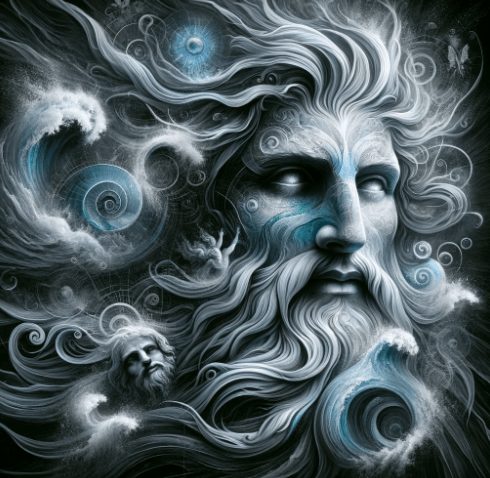Phorcys, a lesser-known but pivotal figure in Greek mythology, reigns from the shadowy depths of the ancient seas as a primordial deity of the ocean’s hidden perils.
Son of Pontus, the primordial god of the sea, and Gaea, the mother of the Earth, Phorcys embodies the ancient Greeks’ fear and fascination with the sea, a domain as nurturing as it is deadly.
Phorcys represents the mysterious and monstrous aspects of the water world, a guardian of mysteries that lurk beneath the waves. His mythology offers a glimpse into the Greeks’ perception of the ocean as a source of both life and inscrutable danger.
Phorcys and Ceto: Progenitors of Monsters
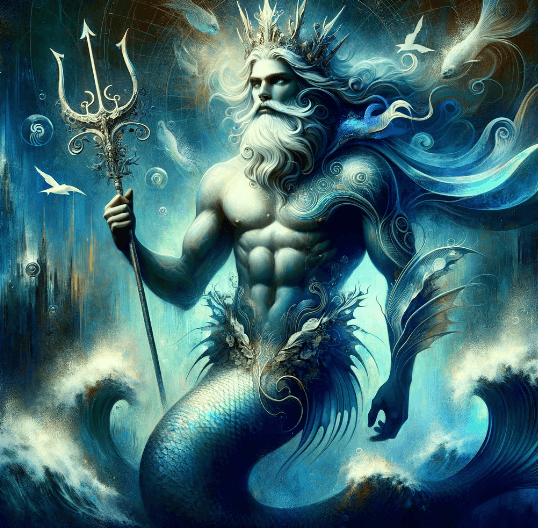
Phorcys, the primordial sea god, holds a pivotal place in Greek mythology not merely for his own mythic attributes, but also for his progeny with Ceto, his sister.
Ceto, together with Phorcys, spawned a lineage that has cemented their place in Greek mythology as the parents of some of the most formidable and spine-chilling creatures known to Greek lore. Their offspring personify the terrors and marvels hidden within the depths of the sea, playing crucial roles in the tales of heroism and tragedy that form the bedrock of Greek mythology.
Among their children were the Gorgons—Stheno, Euryale, and notably, Medusa, whose gaze had the power to petrify anyone who met it. If you want to learn more about them, please follow our article about the Gorgons here.
Equally intriguing were the Graeae, three ancient sea hags of formidable knowledge and power, sharing a single eye and tooth among them, symbolizing the deep, ancient wisdom of the sea, as well as its inscrutable and often cruel nature.
Additionally, Phorcys and Ceto’s lineage included the dragon Ladon, guardian of the golden apples in the Garden of the Hesperides, and the nymph Scylla, later transformed into a monstrous creature that terrorized sailors navigating the strait between her and Charybdis.
The offspring of Phorcys and Ceto are not just mere monsters in tales; they stand as testaments to the ancient Greeks’ understanding of the sea’s dual nature—both life-giving and life-threatening—and their stories continue to captivate the imagination, reminding us of the awe and respect that the natural world, in all its beauty and terror, commands.
The Realm of Phorcys: A Symbol of the Unknown
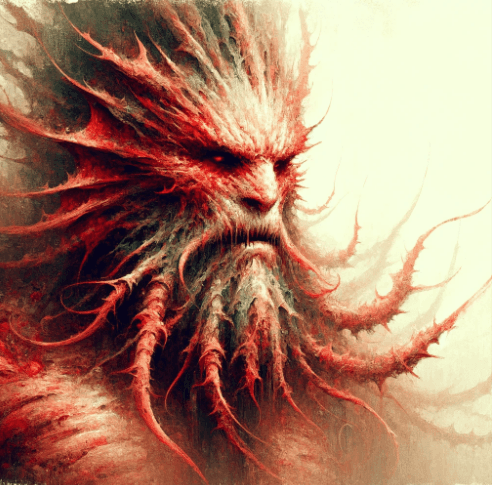
Phorcys’s domain, the dark and fathomless depths of the sea, serves as a potent symbol of the unknown and the unknowable aspects of the world.
In an age when the sea was both a lifeline and a boundary to the known world, Phorcys and his monstrous brood represented the tangible fears of sailors and the metaphorical dangers of venturing into unexplored territories.
His realm is a place of mystery and menace, a stark contrast to the Olympians’ celestial abodes, reflecting the dichotomy between the known world and the mysteries that lie beyond human comprehension.
Phorcys in Greek Mythology: Influence and Imagery
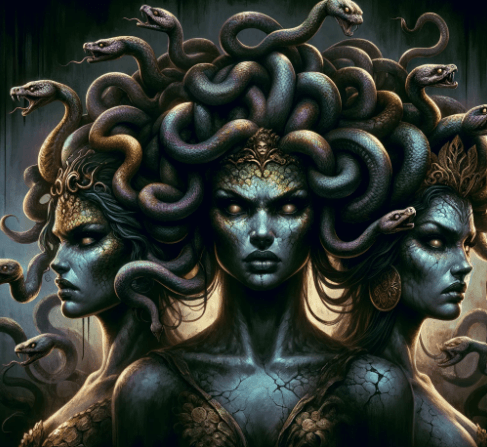
Though Phorcys himself seldom appears in myths, his influence permeates the tales of Greek heroes, most notably in the legend of Perseus. The hero’s quest to slay Medusa, a direct descendant of Phorcys, highlights the intertwined fates of gods, heroes, and monsters.
Phorcys’s depiction varies across myths, often portrayed as a crab-like creature or an old man of the sea, embodying the ancient and eternal nature of the oceans. This imagery reinforces the Greeks’ understanding of the sea as a realm of both bounty and terror, governed by deities as ancient and unfathomable as the waters themselves.
The Cultural Legacy of Phorcys
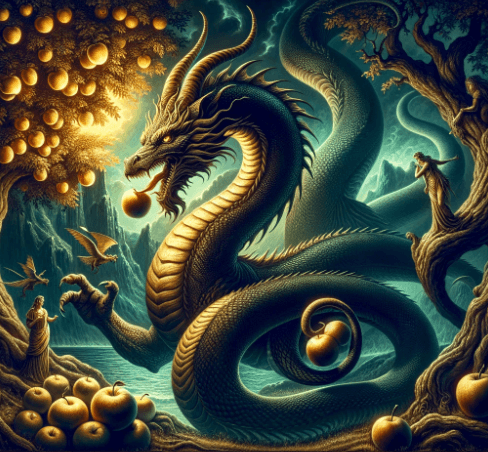
The enduring legacy of Phorcys in Greek mythology lies in the stories that explore humanity’s relationship with the natural world. Through Phorcys and his descendants, these myths articulate the timeless themes of curiosity, fear, and the human spirit’s resilience against the monstrous unknown.
The tales of Phorcys’s brood challenge heroes to confront and overcome the primal fears that lurk in the world’s dark corners, serving as metaphors for the trials and tribulations faced by humanity throughout the ages.
Phorcys’s mythology, with its focus on the monstrous and the mysterious, offers profound insights into the ancient Greek psyche. It reveals a world where the divine and the dreadful intertwine, and where the sea’s enchanting call beckons humanity to explore the unknown, despite the dangers that await.
Get in Touch
Thank you for reading our article about Phorcys. Our journey into the dark and mysterious depths of the ocean, populated by monstrous beings and governed by ancient deities, aims to shed light on the complexities and nuances of Phorcys’s role within the mythological traditions of ancient Greece.
If this exploration of the arcane aspects of the sea has piqued your curiosity, you might find the tales of the Anemoi, the gods of the winds, equally fascinating.
Should you have any inquiries, or wish to delve deeper into the lore of other ancient deities, feel free to reach out at richard@mythologyplanet.com, or share your questions in the comment section below.
For those interested in a visual exploration of the primordial sea god Phorcys, check out the following YouTube video by Cayla Rose.
